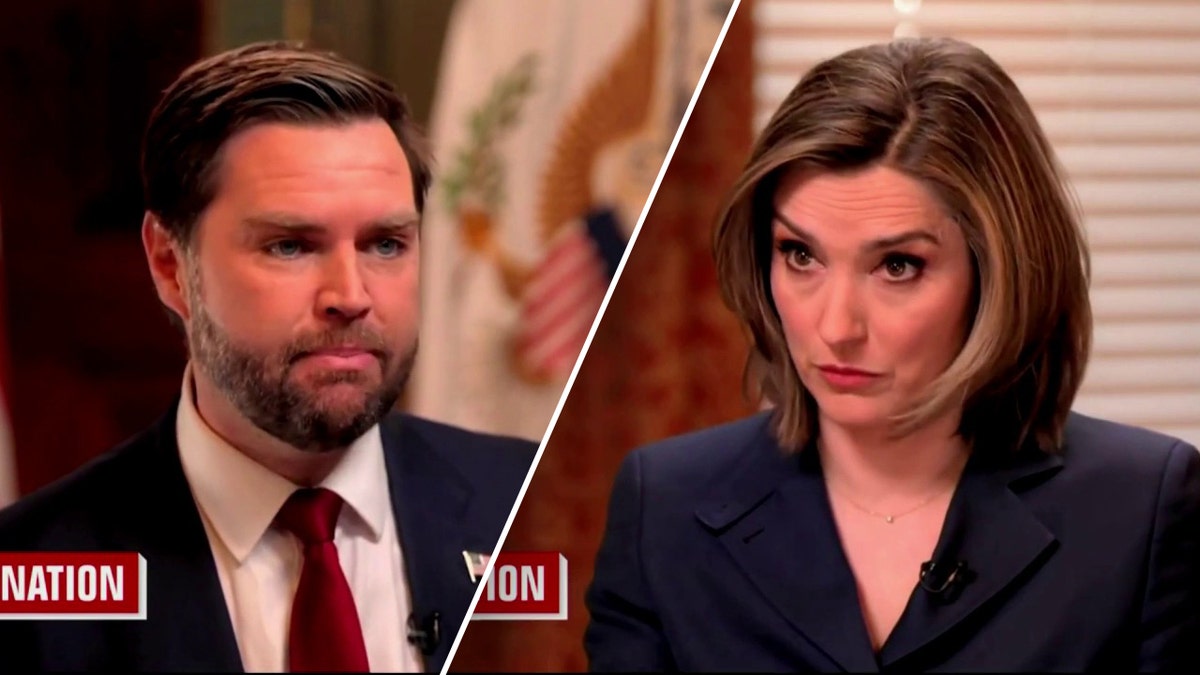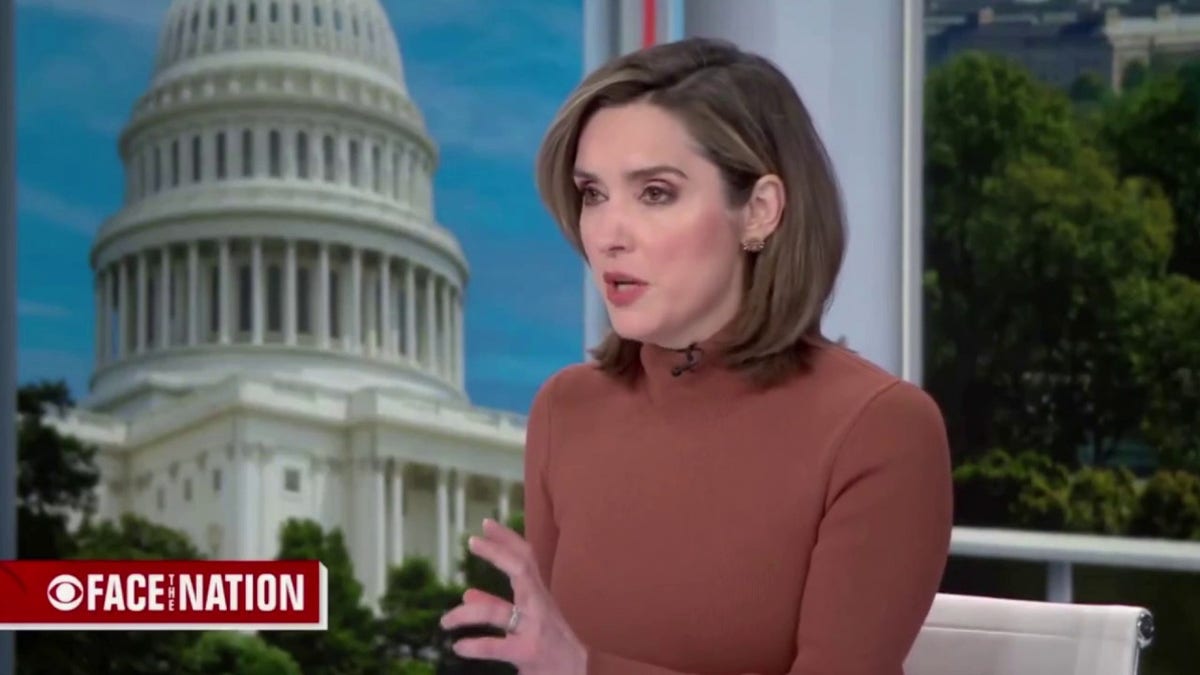Vance Vs. Brennan: Holocaust Speech Controversy Explained
Is free speech, a cornerstone of democratic societies, truly at risk in Europe, or is the rhetoric surrounding its alleged demise a misdirection? The recent clash between Vice President J.D. Vance and CBS News anchor Margaret Brennan, sparked by discussions regarding European censorship and historical interpretations, has ignited a fierce debate, revealing deep fissures in the understanding and application of free speech principles.
The controversy stems from a speech Vice President Vance delivered at the Munich Security Conference, a prominent forum for international discussions on security policy. During his address, Vance criticized European Union efforts to curb free speech, asserting that these actions were, in fact, undermining the very democracy they purported to defend. This perspective quickly became a flashpoint, particularly when juxtaposed against comments made by CBS News' Margaret Brennan, who, during an interview with Secretary of State Marco Rubio, appeared to link Vance's concerns to the historical context of the Holocaust. Brennan's assertion, which claimed that the Nazis "weaponized" free speech to perpetrate the Holocaust, was met with immediate and forceful rebuttals.
The ensuing public exchange saw Vice President Vance directly challenge Brennan's statements, labeling the exchange as "crazy" and accusing her of misrepresenting the complexities of the issue. Secretary of State Rubio, in a clear attempt to distance himself from Brennan's interpretation, emphasized the absence of free speech in Nazi Germany, effectively refuting the claim that the regime utilized such freedoms to further its agenda. The incident quickly escalated beyond mere disagreement, transforming into a significant public clash that highlighted differing perspectives on free speech, historical accuracy, and the current state of political discourse.
The core of the disagreement centers on the interpretation of free speech and its potential vulnerabilities. Vance's concerns, rooted in observations of increasing restrictions on expression within Europe, were interpreted by some as an attempt to equate legitimate criticisms of government policies with the horrors of the Holocaust. This, in turn, sparked outrage from those who saw such comparisons as trivializing the atrocities of the Nazi regime. This ongoing conflict has brought up questions about the roles of journalists, politicians, and the public in defining and defending the principles of free speech.
The Munich Security Conference, the setting for Vance's controversial remarks, has long served as a platform for international leaders to address critical global challenges. It has become a battleground for competing perspectives on free speech, where European nations have come under scrutiny from critics who claim the continent is moving toward greater restrictions on public expression.
The debate also sheds light on the role of media and the influence it wields in shaping public opinion. Margaret Brennan's comments, broadcast on a major network like CBS News, quickly spread across the media landscape, triggering a rapid response from those who viewed her statements as a serious misstep. This highlights the power of media outlets to influence the narrative, particularly when it comes to sensitive topics like history and freedom of speech. The controversy also underscores how easily such topics can be misrepresented or misinterpreted in the heat of political debate.
The initial reaction to Vances speech was varied, with supporters commending his defense of free speech and critics accusing him of oversimplifying the situation. This division in opinion is a reflection of the diverse viewpoints that exist on this issue. These varying perspectives point to the need for a more nuanced conversation, one that acknowledges the complexities of the subject and avoids making hasty, sweeping generalizations.
The implications of this conflict extend beyond the immediate clash between Vance and Brennan. It delves into the broader implications for how society understands and protects freedom of speech. The core of the debate boils down to a disagreement about whether restrictions on free speech in Europe are legitimate efforts to combat hate speech and misinformation, or a dangerous trend toward censorship. Understanding the nuance and complexities of this debate is critical to protecting the fundamental principles of free speech.
The debate regarding European free speech restrictions is not confined to the political and media sphere. It also touches upon academic and legal circles, where discussions about the limits of speech and its impact on society are ongoing. These discussions emphasize the importance of promoting an environment where freedom of expression is protected while also taking into account the potential for harmful speech to cause damage. The role of social media platforms in this conversation is crucial as well. Social media has a significant role in amplifying perspectives, yet it has also become a forum for the spread of misinformation and hate speech, presenting a complex challenge for those who work to protect free speech.
In a landscape where diverse perspectives and interpretations compete, the incident involving Vice President Vance and Margaret Brennan serves as a critical reminder of the ongoing importance of critical thinking, historical accuracy, and respectful dialogue. It underscores the potential for misinterpretations and the significance of responsible speech in the public sphere. The ability to engage in thoughtful debate and to weigh competing viewpoints is crucial for ensuring the preservation of free speech, as well as the promotion of a well-informed and engaged citizenry.
| Person | Information | Details |
|---|---|---|
| Name | J.D. Vance | |
| Current Position | Vice President | |
| Education | Yale Law School | J.D. degree |
| Notable Work | "Hillbilly Elegy" | New York Times Bestseller |
| Political Affiliation | Republican | |
| Key Issues | Free Speech, Economic Policy, Social Issues | |
| Controversies | Remarks on European Free Speech | Criticized for comments at Munich Security Conference |
| Website | White House Official Website |
The debate continues, and more voices are being added to the conversation. The importance of a free and open exchange of ideas, as well as the necessity of protecting our understanding of history, are the important themes of this dialogue. The conflict between Vice President J.D. Vance and Margaret Brennan is an example of the many conversations that shape the future of freedom of expression and the importance of being informed and engaged.


